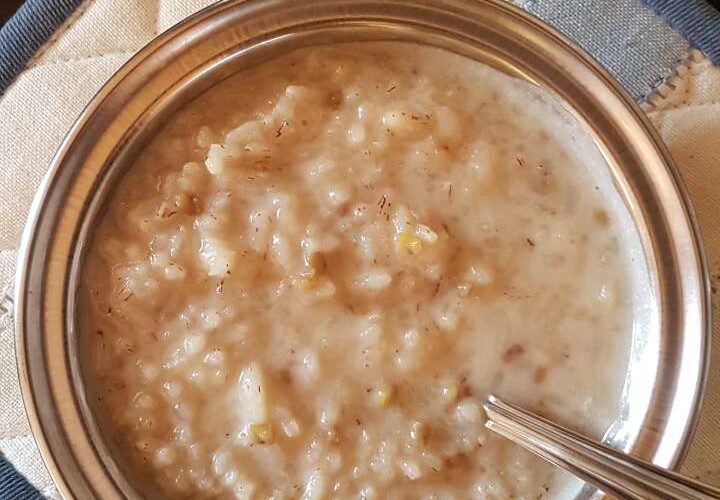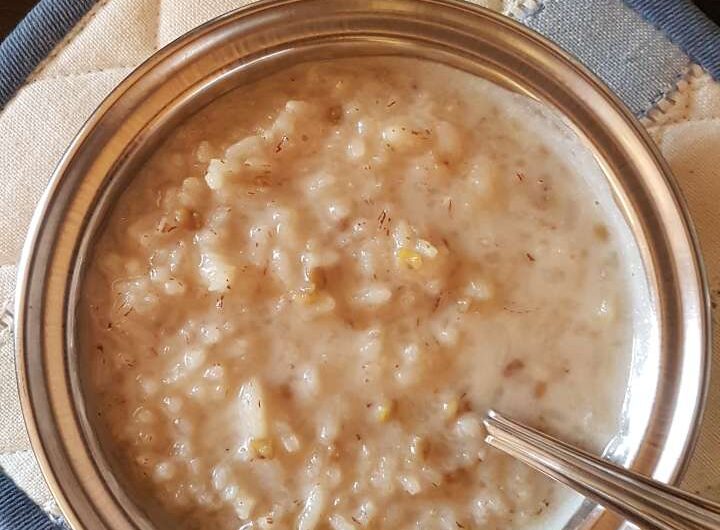Atwal recipe with step-by-step photos and instructions.
Rice-Fenugreek Porridge, Methi Pez, Recipe with fenugreek seeds.
Craving comfort food during the monsoons or chilly winters? Look no further than Atwal! A warm bowl of this rice-fenugreek porridge not only indulges your sweet tooth but also offers a multitude of health benefits. Curious to learn more about the humble Atwal? Read on.
What is Atwal/Atval?
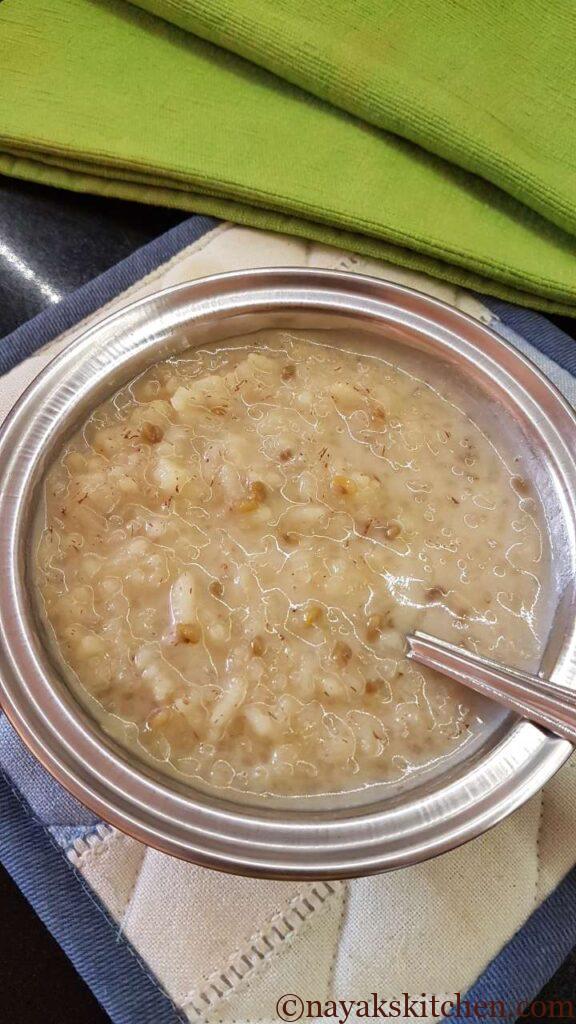
Atwal or rice-fenugreek porridge is a traditional dish in Goa celebrated for its nutritional benefits and unique flavour profile. It is also called as methiyachi pez in Konkani. ‘Methi‘ means fenugreek and ‘Pez‘ means gruel in Konkani. Although, it somewhat resembles payasam, it has a bitter-sweet taste.
Combining the mildness of rice with the distinct, slightly bitter taste of fenugreek, this porridge is not only delicious but also packed with health benefits.
Atwal serves as a comforting food during the monsoons or winters.
Atwal is especially beneficial for nursing mothers, as it significantly boosts breast milk production and supports the health and well-being of both the mother and the baby! Also, it is a highly recommended food to increase breast milk.
Atwal is prepared as a sweet dish on the day of ‘Barso‘ (naming ceremony of the newborn baby on the 12th day). Although it is commonly given to breastfeeding moms but can also be enjoyed by one and all!
It is also suitable for anyone recovering or convalescing. The soft cooked rice is easy to digest. It also relieves body ache and fatigue.
I sometimes make Atwal or fenugreek kheer when it’s cold and we want something warm and nourishing.
How is Atwal prepared?
Atwal is a gruel prepared using rice, fenugreek seeds, coconut milk and jaggery.
Here fenugreek is the star ingredient. This fenugreek dish is given especially to lactating mothers postpartum. There are many traditional recipes for breastfeeding moms.
Atwal recipe is one of the most popular and preferred diet for breastfeeding mothers in Goa. Also, it is an excellent postpartum recipe.
This rice porridge recipe is one of the best way of using fenugreek seeds as they are bitter in taste and hence not palatable.
Ingredients used in Atwal Recipe
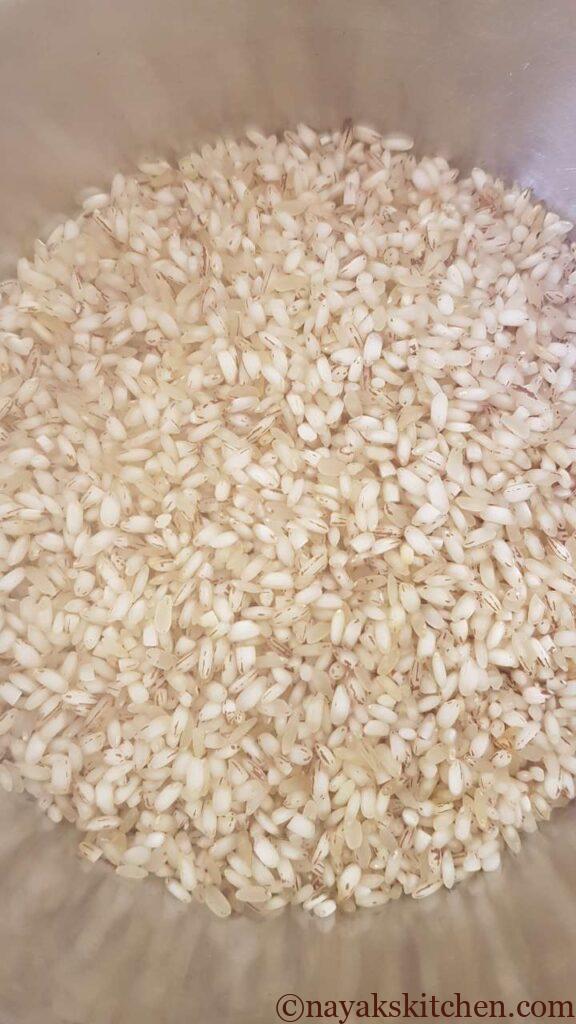
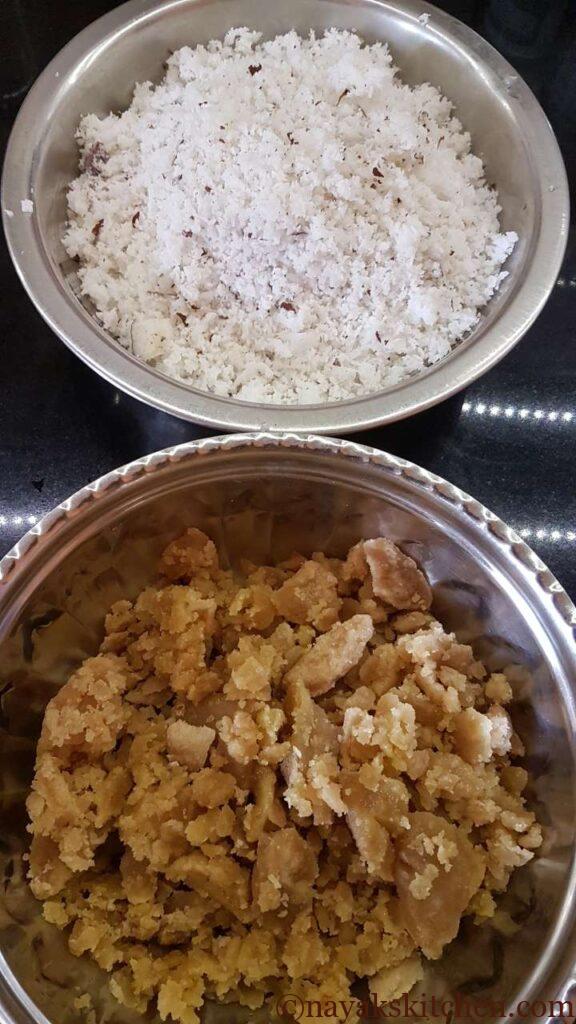
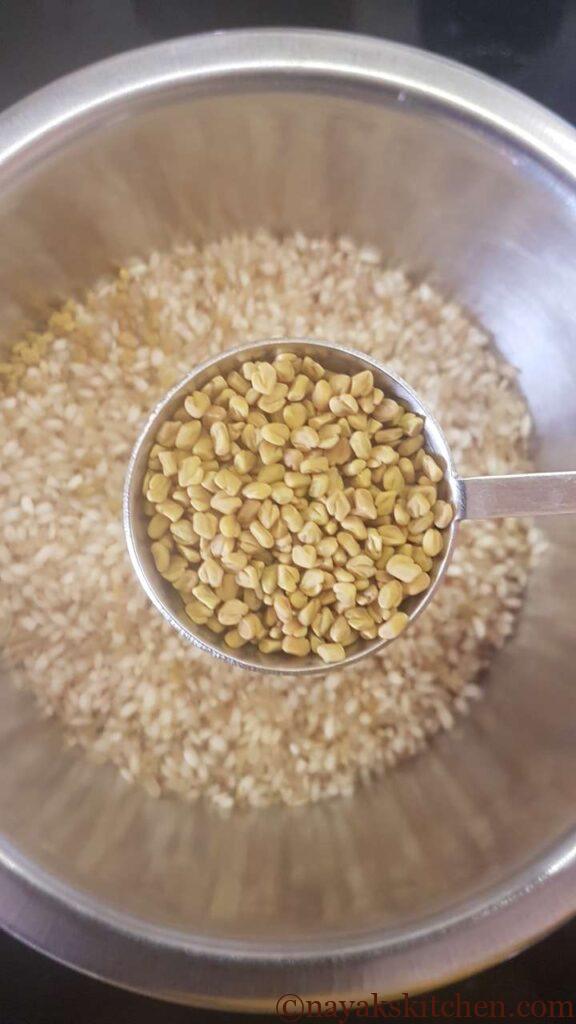
- Rice – Usually brown rice or red rice (known as ukde tandul in Konkani) is used for methi pez. Desi brown rice (available locally) is good for health as it retains the nutrients and fiber as compared to white rice. Also the taste of this rice gruel recipe is better with brown rice or parboiled rice. However, you can use any other variety of rice but do not use basmati rice.
- Fenugreek Seeds – Fenugreek also known as ‘methi’ is the key ingredient. This is one of the best way to eat fenugreek seeds.
- Coconut Milk – Fresh coconut milk is needed for this recipe.
- Jaggery – I have used organic jaggery. However, adjust the sweetness as per your preference.
- Ginger – A small piece of ginger enhances taste and prevents bloating, flatulence and constipation. However, it is optional.
Tips
- Rice – Preferably use desi (gavthi) brown rice or ukde tandul. Brown rice yields a nice texture to Atwal and is also very nutritious. It has better fiber content, vitamins and minerals. However, if you do not have brown rice use any other short grain rice like sona masoori, jeera rice, raw rice etc. But, avoid basmati rice as it does not become soft upon cooking.
- Coconut – Use freshly grated coconut for preparing coconut milk. Do not use desiccated coconut.
- Jaggery – I have used organic jaggery. Adjust the sweetness to suit your taste.
- Ginger – Ginger also improves the flow of milk in a breastfeeding mother. Moreover it prevents flatulence and bloating.
- Boiling – Do not boil Atwal for too long as the coconut milk in it will curdle.
- Consistency – Make the Atwal of medium consistency. Atwal starts thickening as it cools down.
Atwal – An elixir for nursing mothers
Atwal is a cherished traditional Goan dish prescribed for postpartum women to boost recovery and enhance milk production. It should be given atleast once a day to a nursing mother.
Atwal is a very healthy porridge and heals and repairs the body from inside. It reduces body ache and pain. Hence new mothers are given Atwal in a postpartum diet.
The Methi Pez is truly an elixir to a new mother.
Fenugreek – Boosts lactation, natural painkiller, shrinks the uterus back to its normal size naturally.
Rice – A new mother often lacks energy, and rice provides the necessary carbohydrates to boost energy levels.
Jaggery – Soothes and acts as a mild sedative. Helps the mother sleep well. It also provides iron as mothers are prone to iron deficiency.
Ginger – Aids digestion. Also, prevents bloating, gas and flatulence.
Fenugreek – A Natural Galactagogue
Fenugreek is particularly renowned for its role as a galactagogue—an agent that promotes lactation in breastfeeding mothers. A galactagogue is a substance that helps to increase milk supply in lactating women. These can be pharmaceutical drugs or natural herbs like fenugreek.
Many breastfeeding mothers experience challenges with milk production especially C-section deliveries. Galactagogues provide a natural way to enhance milk supply, ensuring that the infant receives adequate nutrition.
Fenugreek is a natural galactagogue and also a painkiller. It heals aching muscles and joints. Hence it is given to new mothers and convalescing patients. Also, methi pez helps restore the uterus back to its normal size.
Fenugreek also slows down sugar uptake and stimulates insulin. It hence regulates sugar spikes.
How to make Atwal? (Atwal Recipe)
- Clean the brown rice. Take rice and fenugreek seeds (methi) in a bowl.


2. Wash the rice and methi twice with fresh water. Soak the rice and fenugreek seeds for 15-30 mins.
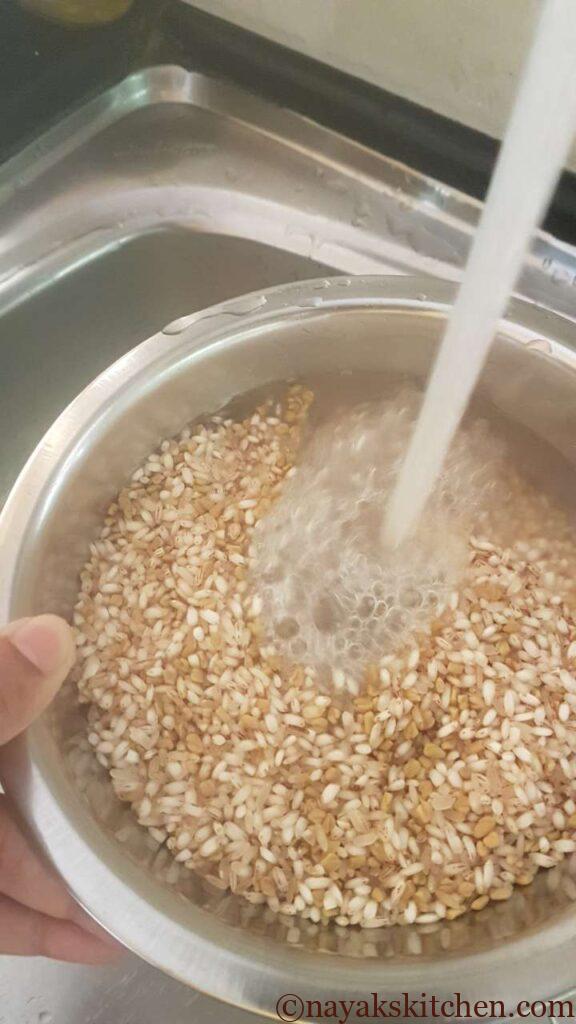
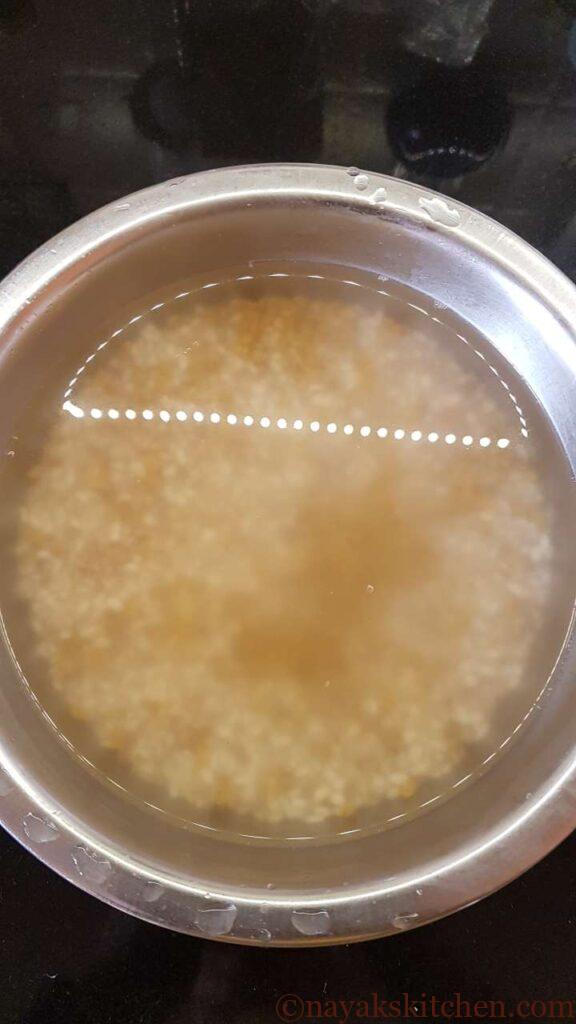
3. After soaking, take the rice and fenugreek seeds in a pressure cooker. Also, add 3 cups of water in the pressure cooker to cook the rice.
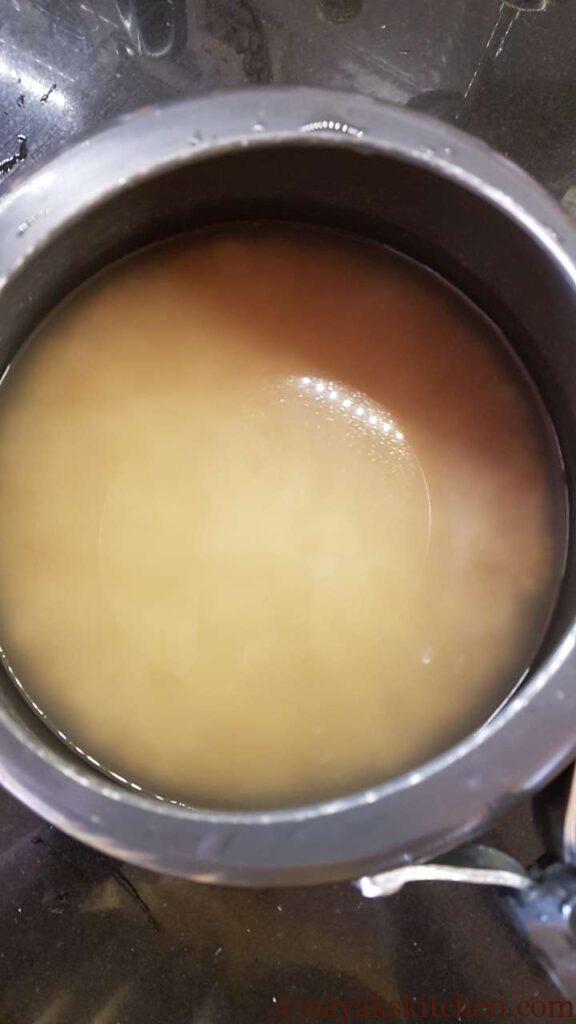
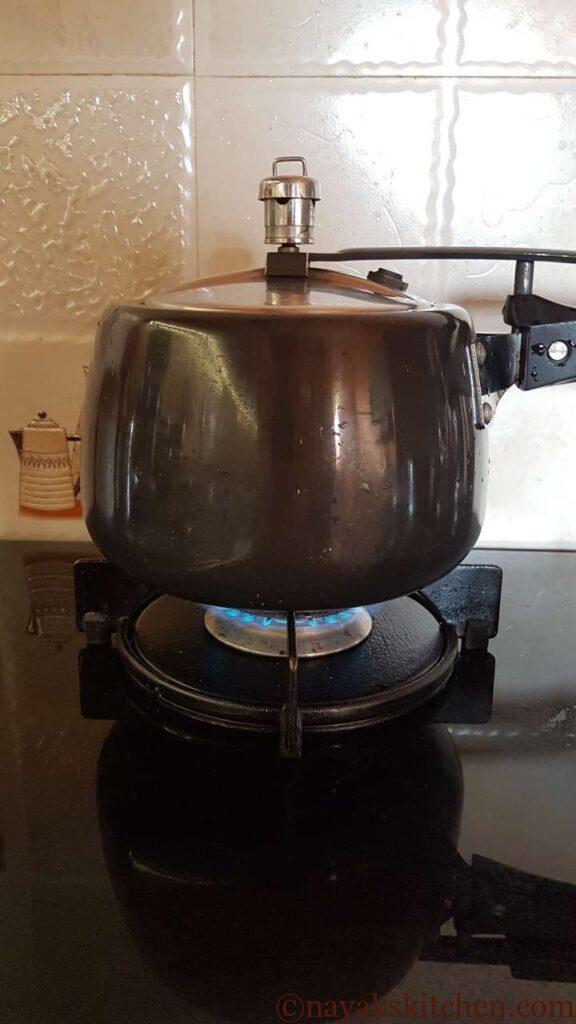
4. Pressure cook for 4-5 whistles till soft. The rice has to cook till it becomes soft and mushy.
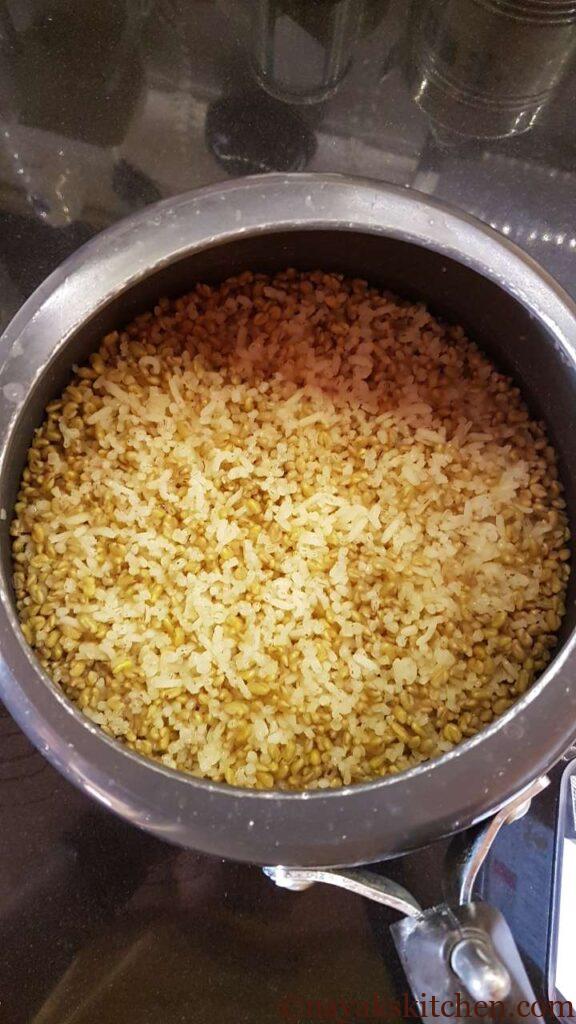
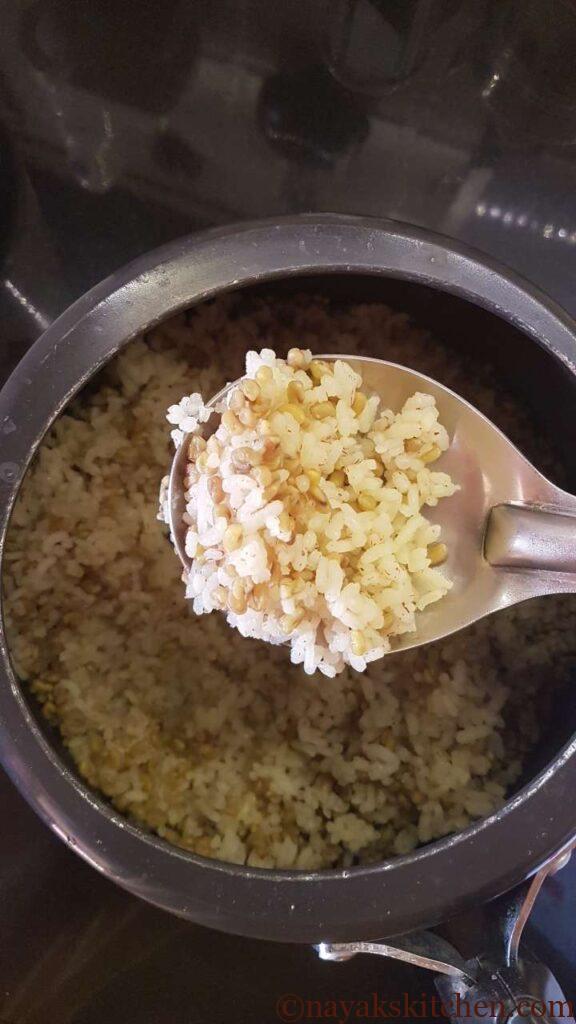
Extracting Coconut Milk
Thick Coconut Milk
5. Take the grated coconut in a mixie jar. Add 1 and 1/2 cups of water and grind the coconut to a paste. Add 1/2 cup water again and extract thick coconut milk. Keep it aside.
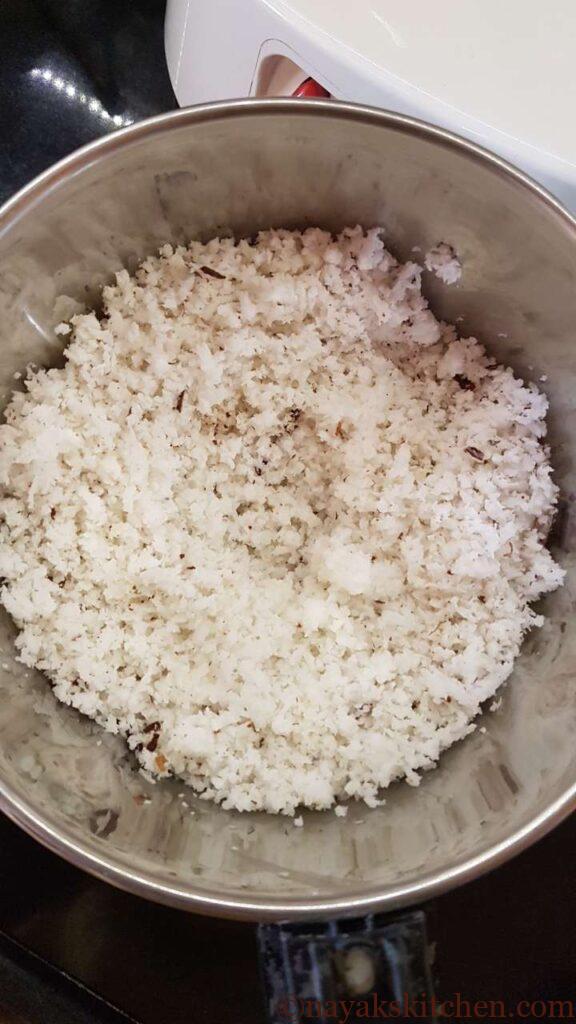
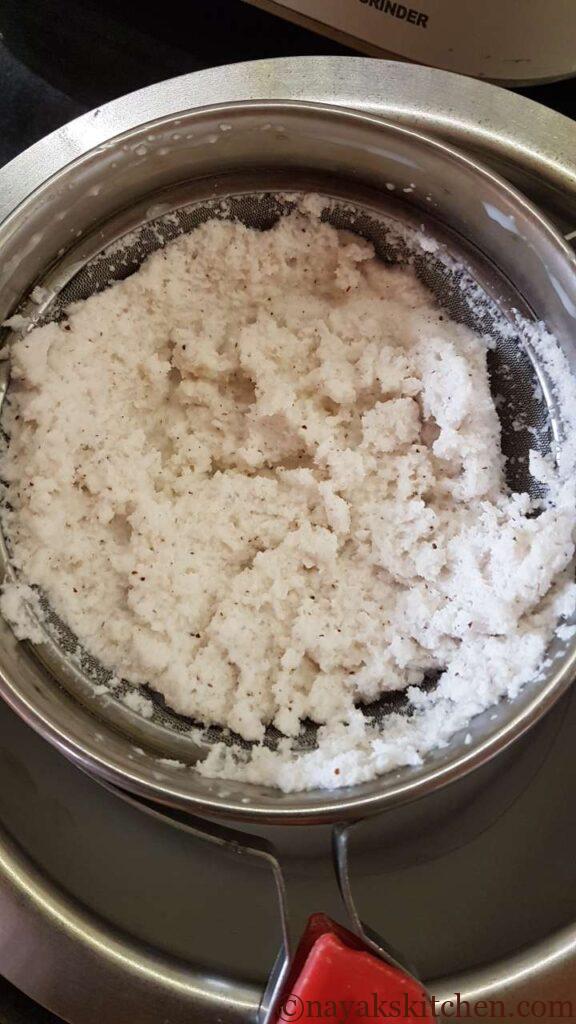
Thin Coconut Milk
6. Add 1 and 1/2 cup water to the coconut residue again and extract thin coconut milk. Keep this thin coconut milk aside separately. Also, do not mix with the thick coconut milk.
Preparing Atwal
7. Take the cooked rice and fenugreek seeds in a deep-bottomed vessel. Add thick coconut milk to it.
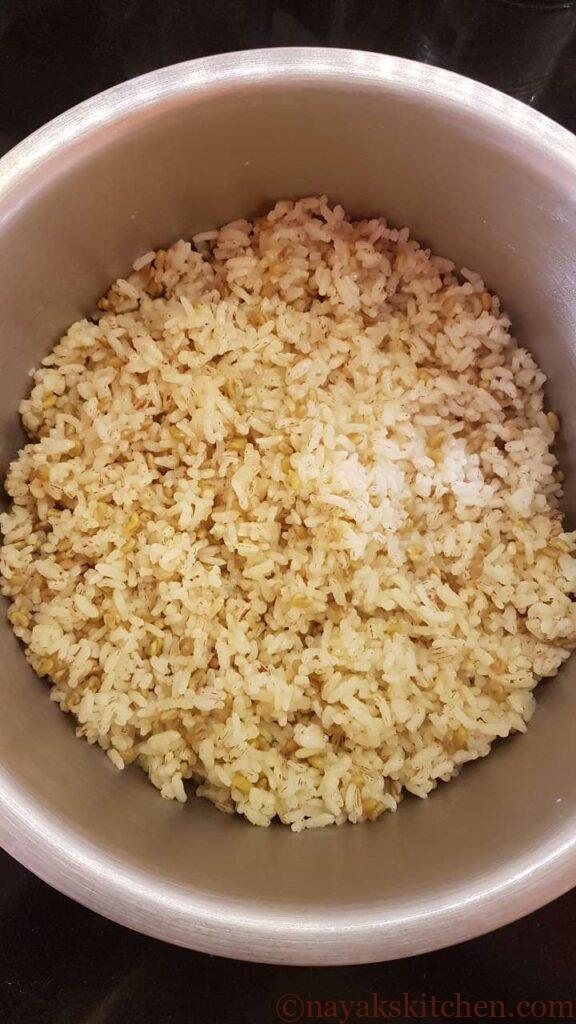
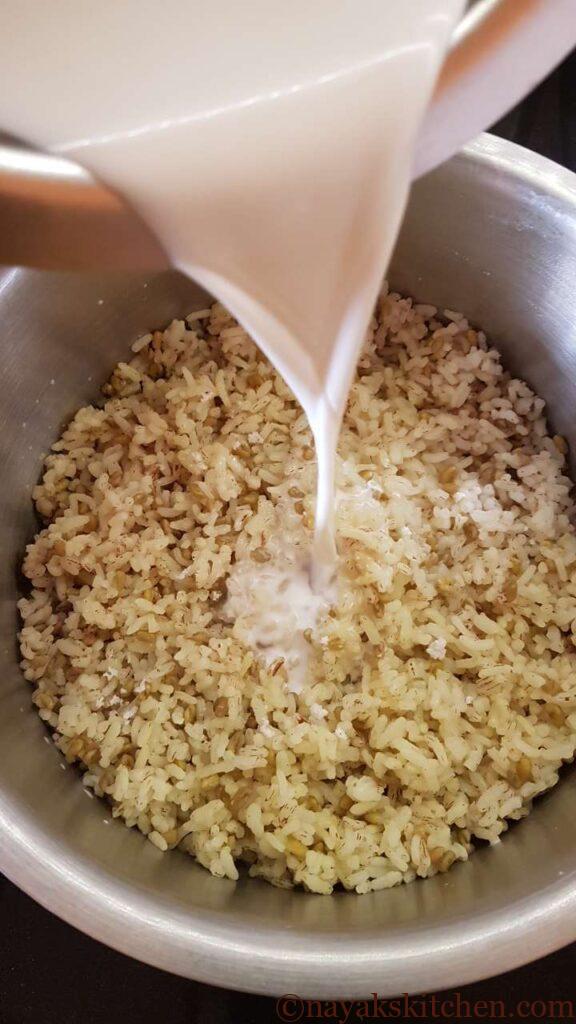
8. Place the vessel on the cooktop. Switch on the gas and keep the flame medium. Add jaggery to the rice-fenugreek-coconut milk mixture.
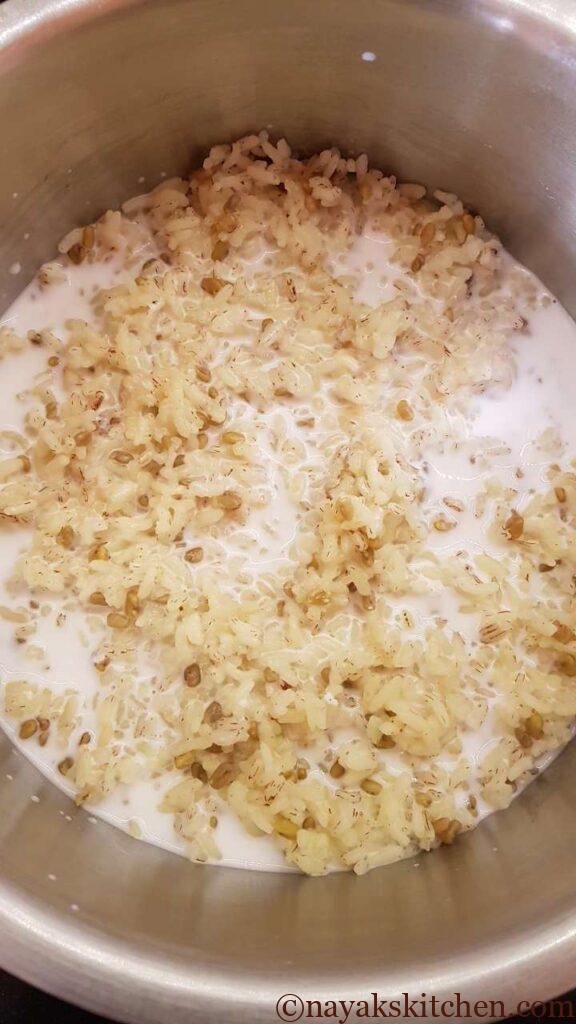
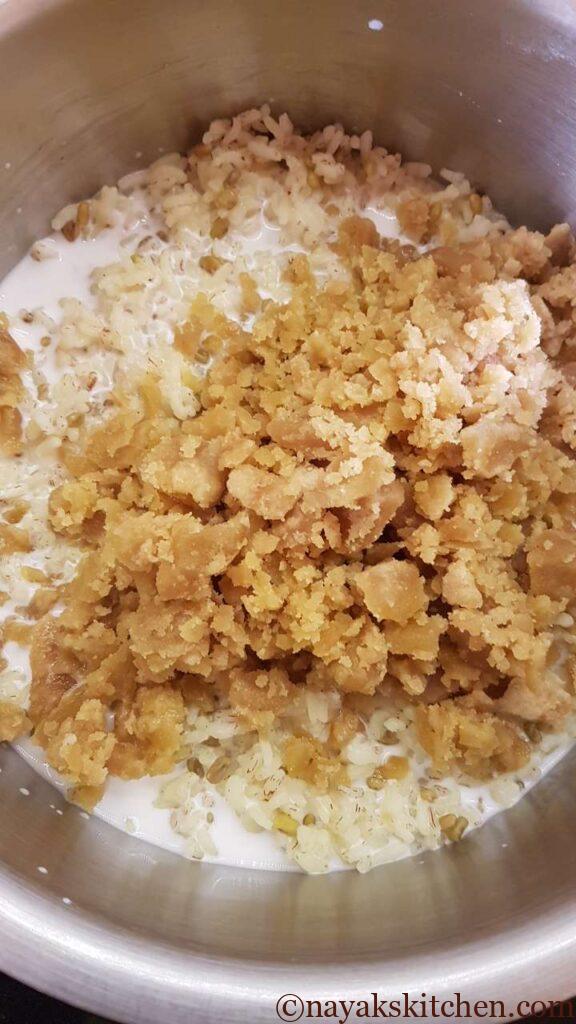
9. Add salt and mix everything well.
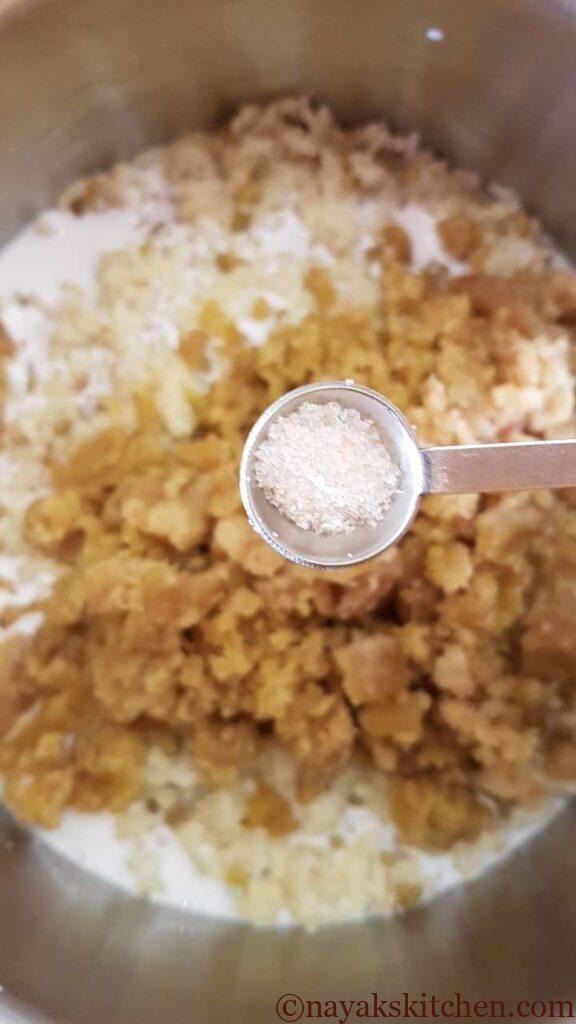
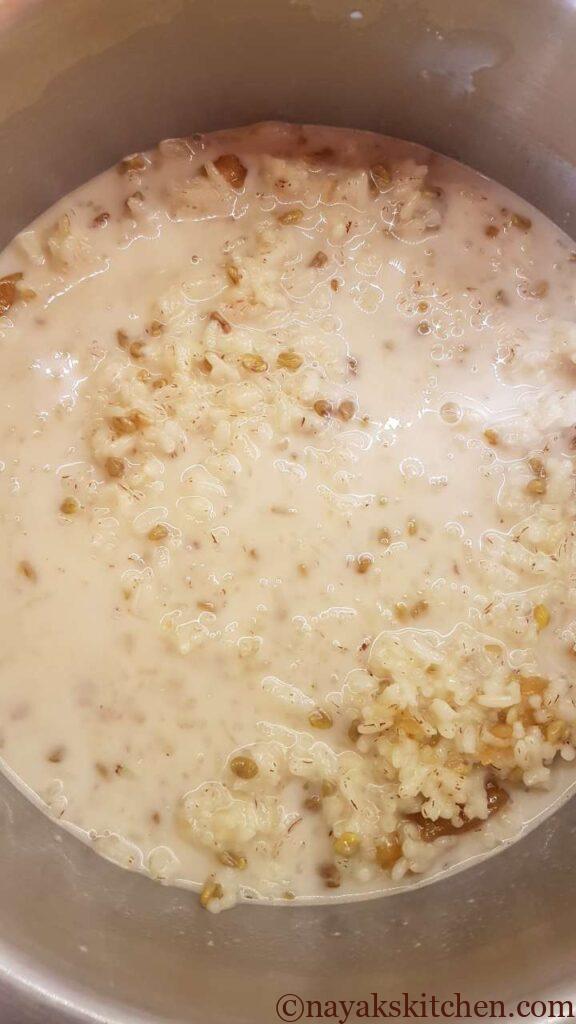
10. Add a piece of crushed ginger (optional). Finally, add the thin coconut milk as per the required consistency.
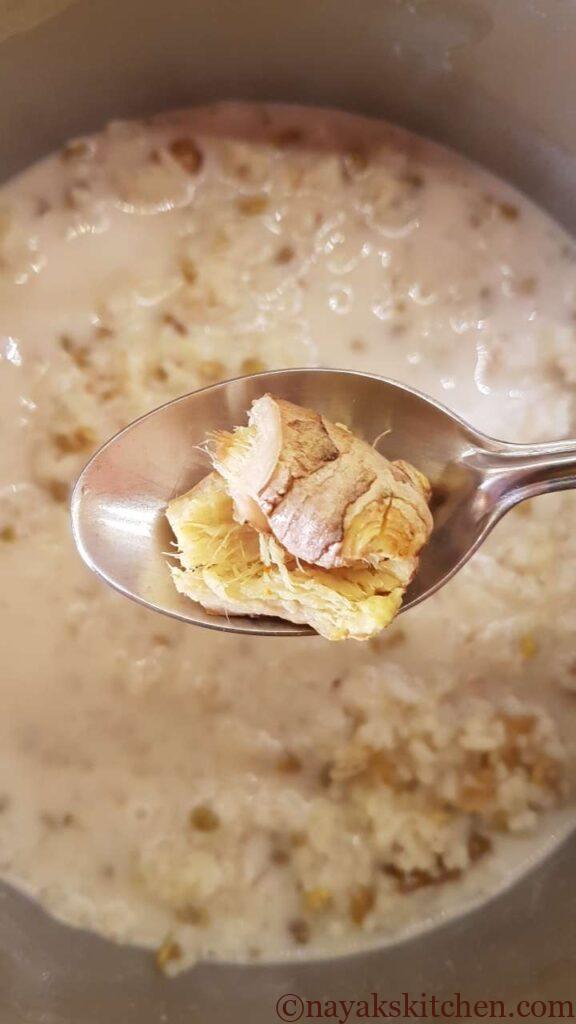
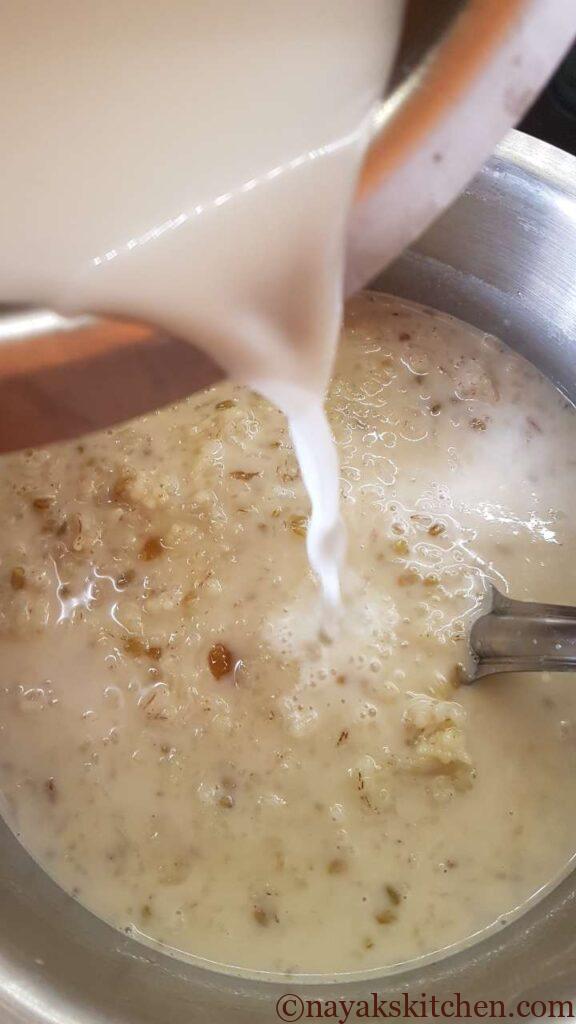
11. Stir the mixture well to blend everything. Allow it to cook for 5 mins. Simmer till the mixture starts boiling. Do not overcook otherwise the coconut milk will curdle. Switch off the gas.
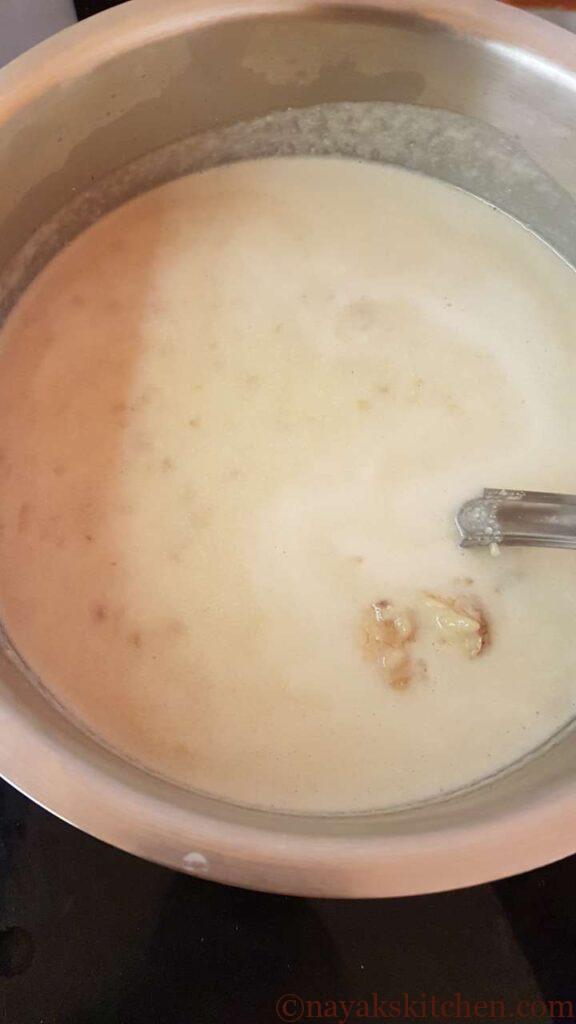
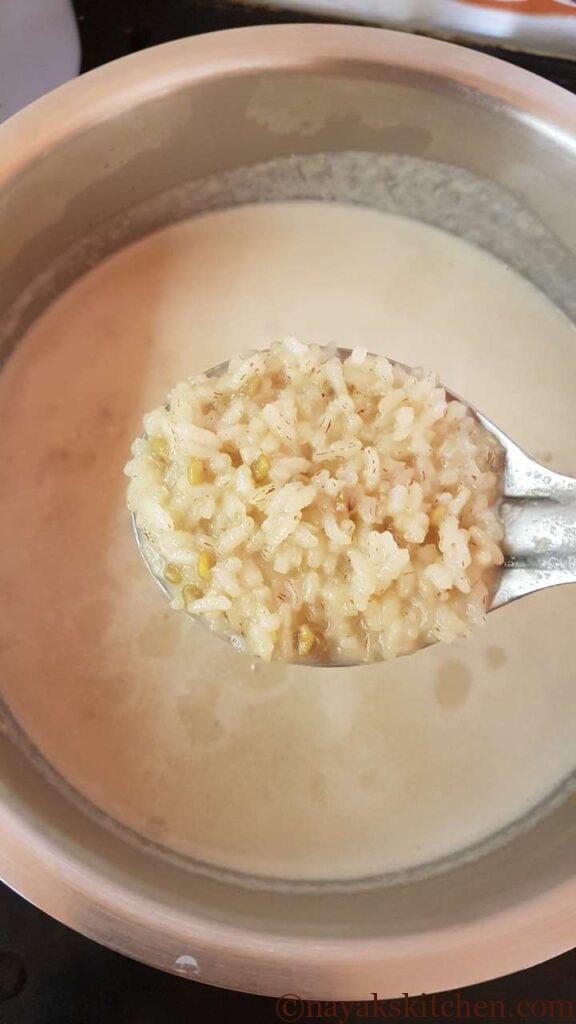
12. Serve warm and enjoy!
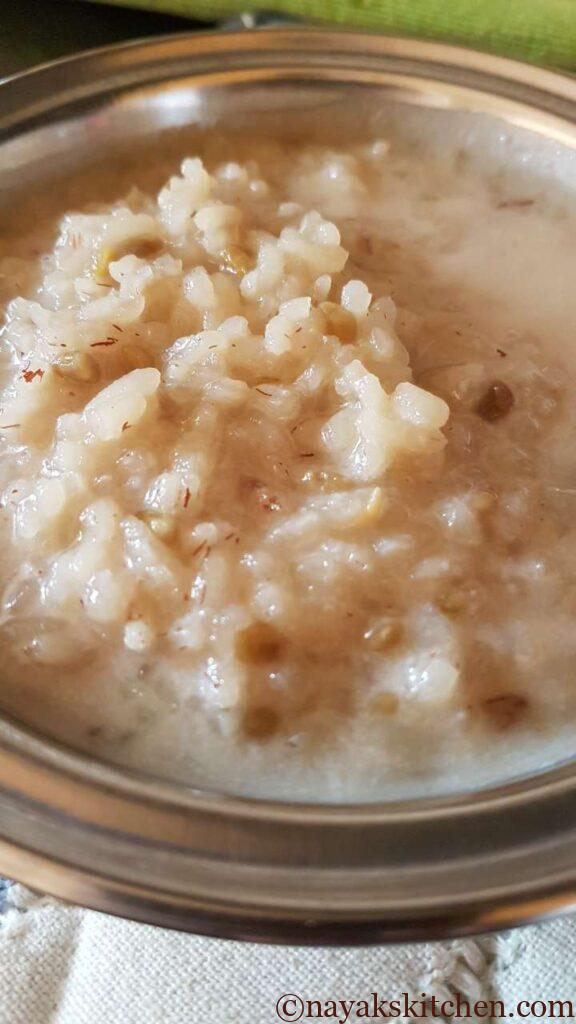
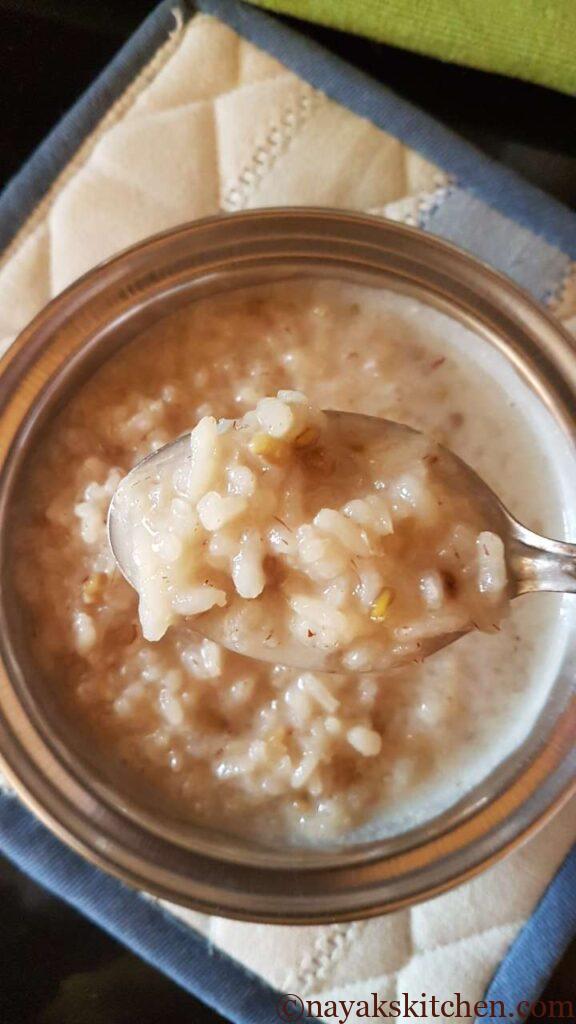
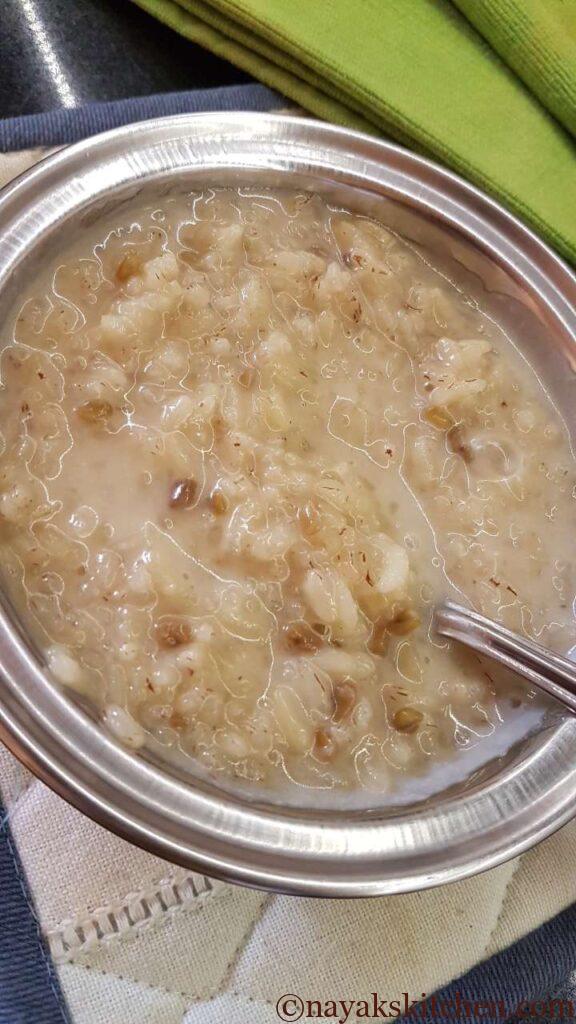
More Authentic Goan Sweets
Mangane (Chana Dal – Sabudana Payasam)
Rice Payasam (Tandlacho Payas)
Atwal | Methiyachi Pez | How To Make Rice-Fenugreek Porridge?
Course: Goan Sweets, Lactation RecipesCuisine: GoanDifficulty: MediumAtwal or rice-fenugreek porridge is a traditional dish in Goa celebrated for its nutritional benefits especially for nursing mothers.
Ingredients
1 cup = 250 ml
1 tbsp = 15 ml
1 tsp = 5 ml
Brown Rice – 1 cup
Fenugreek Seeds (Methi) – 3-4 tbsp
Grated Coconut – 3 cups
Jaggery – 1 and 1/2 cups
Ginger – a small piece (optional)
Salt – 1/4 tsp
Water – 3 cups (To cook rice and fenugreek)
Water – 2 cups (To extract thick coconut milk)
Water – 1 and 1/2 cups (To extract thin coconut milk)
Directions
- Clean the brown rice. Take rice and fenugreek seeds (methi) in a bowl.
- Wash the rice and methi twice with fresh water. Soak the rice and fenugreek seeds for 15-30 mins.
- After soaking, take the rice and fenugreek seeds in a pressure cooker. Add 3 cups of water in the pressure cooker to cook the rice.
- Pressure cook for 4-5 whistles till soft. The rice has to cook well and become soft and mushy.
- Extracting thick coconut milk
- Take the grated coconut in a mixie jar. Add 1 and 1/2 cups of water and grind the coconut to a paste. Add 1/2 cup water again and extract thick coconut milk. Keep it aside.
- Extracting thin coconut milk
- Add 1 and 1/2 cup water to the coconut residue again and extract thin coconut milk. Keep this thin coconut milk aside separately. Do not mix with the thick coconut milk.
- Preparing Atwal
- Take the cooked rice and fenugreek seeds in a deep-bottomed vessel. Add thick coconut milk to it.
- Place the vessel on the cooktop. Switch on the gas and keep the flame medium. Add jaggery to the rice-fenugreek-coconut milk mixture.
- Add salt and mix everything well.
- Add a piece of crushed ginger (optional). Next add the thin coconut milk as per the required consistency.
- Stir the mixture well to blend everything. Allow it to cook for 5 mins. Simmer till the mixture starts boiling. Do not overcook else the coconut milk will curdle. Switch off the gas.
- Serve warm and enjoy!
Notes
- Preferably use desi (gavthi) brown rice or ukde tandul.
- If you do not have brown rice use any other short grain rice like sona masoori, jeera rice, raw rice etc.
- Avoid basmati rice as it does not become soft upon cooking.
- Use freshly grated coconut for preparing coconut milk. Do not use desiccated coconut.
- Adjust the sweetness to suit your taste.
- Do not boil Atwal for too long as the coconut milk in it will curdle.
- Make the Atwal of medium consistency. Atwal starts thickening as it cools down.
Benefits of fenugreek seeds
- Fenugreek seeds are rich in essential nutrients, including vitamins A, C, and B6 and minerals like iron, magnesium, and manganese.
- They have high dietary fiber content that aids in digestion by adding bulk to the stool, which can help prevent constipation.
- Fenugreek also acts as a natural antacid, reducing symptoms of indigestion and heartburn.
- The soluble fiber in fenugreek slows down carbohydrate digestion and absorption, hence it helps regulate blood sugar levels.
- Fenugreek is a well-known galactagogue, meaning it helps increase milk supply in breastfeeding mothers. Compounds such as phytoestrogens and diosgenin stimulate milk production.
- Fenugreek seeds possess anti-inflammatory properties. As a result, it can help reduce inflammation in the body.
- The antioxidants and anti-inflammatory properties of fenugreek seeds can improve skin health by reducing acne and other skin issues.
